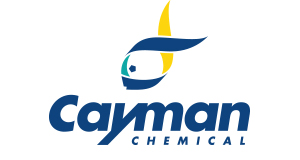FcγRI/CD64 Rabbit Monoclonal Antibody (Clone 027)
FcγRI/CD64 Rabbit Monoclonal Antibody (Clone 027)
SKU
CAY37015-100
Packaging Unit
100 µl
Manufacturer
Cayman Chemical
Availability:
loading...
Price is loading...
Formulation: 50 or 100 µl of protein A-affinity purified monoclonal antibody
Immunogen: Recombinant mouse C-terminal His-tagged CD64 extracellular domain
Clone Designation: 27
Shelf life (days): 365
Notes: CD64, also known as high-affinity immunoglobulin γ receptor I (FcγRI), is a transmembrane glycoprotein that binds the Fc region of IgG.{67216} It is composed of a ligand-binding α-chain, which contains three extracellular Ig-like domains, a transmembrane region, and a cytoplasmic domain, and two γ-chains, which contain immunoreceptor tyrosine-based activation motifs (ITAMs) that mediate signal transduction.{67217,67218,67219} CD64 is constitutively expressed in myeloid cells, including monocytes and macrophages, but can be induced in neutrophils in response to IFN-γ or G-CSF.{67220,67218} It is involved in phagocytosis, cytokine release, antibody-dependent cell-mediated cytotoxicity (ADCC), and antigen presentation to primed T cells.{67216,67221} Mouse CD64 selectively forms immune complexes with IgG2a, whereas human CD64 forms immune complexes with IgG1, IgG3, and IgG4.{67216,67222} Knockout of Fcgr1, the gene encoding CD64, inhibits clearance of B. pertussis infection in mice.{67216} Increased serum levels of CD64 are associated with sepsis.{55736} Cayman’s FcγRI/CD64 Rabbit Monoclonal Antibody can be used for flow cytometry (FC), immunocytochemistry (ICC), and immunofluorescence (IF) applications.
Immunogen: Recombinant mouse C-terminal His-tagged CD64 extracellular domain
Clone Designation: 27
Shelf life (days): 365
Notes: CD64, also known as high-affinity immunoglobulin γ receptor I (FcγRI), is a transmembrane glycoprotein that binds the Fc region of IgG.{67216} It is composed of a ligand-binding α-chain, which contains three extracellular Ig-like domains, a transmembrane region, and a cytoplasmic domain, and two γ-chains, which contain immunoreceptor tyrosine-based activation motifs (ITAMs) that mediate signal transduction.{67217,67218,67219} CD64 is constitutively expressed in myeloid cells, including monocytes and macrophages, but can be induced in neutrophils in response to IFN-γ or G-CSF.{67220,67218} It is involved in phagocytosis, cytokine release, antibody-dependent cell-mediated cytotoxicity (ADCC), and antigen presentation to primed T cells.{67216,67221} Mouse CD64 selectively forms immune complexes with IgG2a, whereas human CD64 forms immune complexes with IgG1, IgG3, and IgG4.{67216,67222} Knockout of Fcgr1, the gene encoding CD64, inhibits clearance of B. pertussis infection in mice.{67216} Increased serum levels of CD64 are associated with sepsis.{55736} Cayman’s FcγRI/CD64 Rabbit Monoclonal Antibody can be used for flow cytometry (FC), immunocytochemistry (ICC), and immunofluorescence (IF) applications.
| SKU | CAY37015-100 |
|---|---|
| Manufacturer | Cayman Chemical |
| Manufacturer SKU | 37015-100 |
| Package Unit | 100 µl |
| Quantity Unit | STK |
| Clonality | Monoclonal |
| Application | Immunofluorescence, Flow Cytometry, Immunocytochemistry, Reinstoffe |
| Isotype | IgG |
| Host | Rabbit |
| Product information (PDF) | Download |
| MSDS (PDF) |
|

 Deutsch
Deutsch










